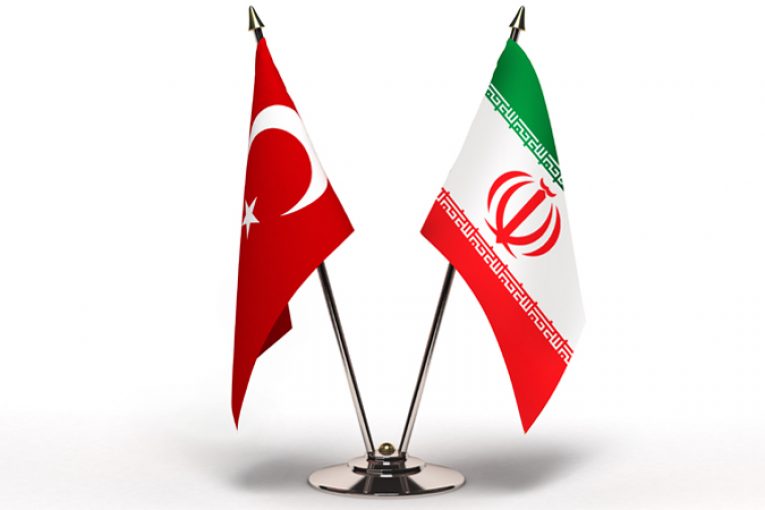
اعداد : أ.د أحمد جاسم ابراهيم – مركز بابل للدراسات الثقافية والتاريخية – جامعة بابل
- المركز الديمقراطي العربي
- مجلة مدارات إيرانية : العدد الثالث عشر أيلول – سبتمبر 2021 المجلد 4, دورية علمية محكمة تصدر عن المركز الديمقراطي العربي ألمانيا –برلين” .تعنى بالشأن الإيراني داخليا واقليميا ودوليا.
-
فصلنامه مدارات إيرانية فصلنامه أي علمي از طرف مركز دمكراسي عربي برلن منتشر مي شود.
للأطلاع على البحث “pdf” من خلال الرابط المرفق :-
الملخص:
ساهم الاحتلال الأمريكي للعراق عام 2003 في تعزيز العلاقات التركية الإيرانية انطلاقاً من إدراك البلدين لطبيعة المخاطر الناشئة عن دوافع الاحتلال الأمريكي للعراق ، سواء فيما يتعلق بالخوف التركي من قيام دولة كردية في العراق. شمال العراق ، أو القلق الإيراني من هجوم أمريكي على إيران بسبب برنامجها النووي ، أو لأسباب أخرى. قد يساهم تسلّم التيار المحافظ للسلطة والتزاماته في إيران في تدهور العلاقات التركية الإيرانية بسبب نهجها المتشدد والتزاماتها الأيديولوجية ورفضها الحوار مع الولايات المتحدة. وكذلك استخدام السلاح النووي الإيراني لتعزيز مكانة إيران في ساحات التنافس مع تركيا وخاصة في جمهوريات آسيا الوسطى.
الضغط الأمريكي عامل مهم في إعاقة تطور العلاقات التركية الإيرانية ، خاصة أن تركيا حليف للولايات المتحدة وإيران عدو ، ويزداد تأثير هذا العامل مع تزايد حدة التوتر الأمريكي الإيراني. المواجهة سواء فيما يتعلق ببرنامجها النووي أو بسبب ما تدعي الولايات المتحدة من تدخل إيراني في الشأن العراقي. إلا أن التهديدات المشتركة التي يواجهها البلدان ، خاصة بعد الاحتلال الأمريكي للعراق في آذار 2003 ، دفعت إلى مزيد من التنسيق والتعاون المشترك وقصف البلدان قرى كردية في شمال العراق لاستهداف مواقع المقاتلين الأكراد الذين يشنون هجمات متتالية ضدهم. لهم ، إذ كانوا ينشطون في الأشهر الأخيرة في شن عمليات على الحدود الإيرانية ، وفي المقابل ينشط حزب العمال الكردستاني في شن عمليات عسكرية داخل الأراضي التركية. وكان للعمليات تفاهم متبادل تجلى من خلال زيارة وزير الخارجية التركي (علي باباجان) إلى إيران في تشرين الأول (أكتوبر) 2007 وزيارة وزير الخارجية الإيراني (منوشهر متكي) إلى العراق ودعوة رئيس الوزراء العراقي. السيد (نوري المالكي) على إيران أن تلعب دوراً هاماً وفعالاً في التسوية السلمية للأزمة العراقية – التركية ، ولقيت هذه العملية أيضاً الدعم السوري الذي عبرت عنه زيارة الرئيس (بشار الأسد) في أكتوبر 2007 الذي أكد حق تركيا في الدفاع عن نفسها. العوامل والمتغيرات نحو مزيد من التطوير للعلاقات التركية الإيرانية.
Abstract
The US occupation of Iraq in 2003 contributed to strengthening Turkish-Iranian relations based on the two countries’ awareness of the nature of the dangers that emerged from the motives of the US occupation of Iraq, whether with regard to Turkish fear of a Kurdish state in northern Iraq, or Iranian concern about an American attack on Iran because of its program nuclear, or for other reasons. The conservative movement’s receipt of power and its commitments in Iran may contribute to the deterioration of Turkish-Iranian relations because of its hard-line approach, ideological commitments and its refusal to dialogue with the United States. As well as the use of Iranian nuclear weapons to strengthen Iran’s position in the competitive arenas with Turkey, especially in the Central Asian republics.
American pressure is an important factor in hindering the development of Turkish-Iranian relations, especially since Turkey is an ally of the United States while Iran is an enemy, and the influence of this factor increases with the increase in The intensity of the US-Iranian confrontation, whether with regard to its nuclear program, or because of what the United States claims of Iranian interference in the Iraqi affairs. However, the joint threats that the two countries face, especially after the US occupation of Iraq in March 2003, prompted more coordination Joint cooperation and the two countries bombed Kurdish villages in northern Iraq to target the positions of the Kurdish fighters who launch successive attacks against them, as they have been active in recent months in launching operations on the Iranian borders, and in return the Kurdistan Workers Party (PKK) has been active in launching military operations inside Turkish territory. The operations had a mutual understanding, which was expressed through the visit of the Turkish Foreign Minister (Ali Babacan) to Iran in October 2007 and the visit of the Iranian Foreign Minister (Manouchehr Mottaki) to Iraq and the invitation of the Iraqi Prime Minister, Mr. (Nuri al-Maliki) Iran to play an important and effective role, in Peaceful settlement of the Iraqi-Turkish crisis, and this process also found Syrian support, which was expressed through the visit of President (Bashar al-Assad) in October of 2007, who affirmed Turkey’s right to defend itself. Factors and variables towards further development of Turkish-Iranian relations.
